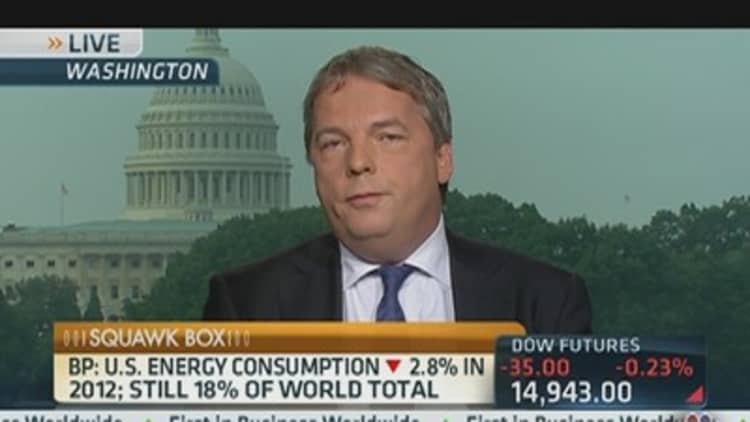The shale revolution sweeping the U.S. helped push oil production in the world's largest economy to a record last year, BP said in a report this week, underscoring expectations of the nation's energy independence.
In a statistical review of energy demand in 2012, the U.S., the world's third-largest oil producer, said energy production rose 1.3 percent to 15 percent of the global total. A bounty of shale and natural gas helped energy supplies set record for the third straight year, according to BP.
U.S. production of natural gas surged nearly 5 percent last year, BP said. It is now the largest producer of the gas, with 20 percent of the global total, as well as the biggest consumer of both natural gas and crude oil.
The U.S. saw "the biggest increase in oil and gas production of all the countries in the world," BP Chief Economist Christof Ruhl told CNBC's "Squawk Box" this week. "This was the biggest increase in oil production in the entire history" of the country, he said, adding that much of that was on the back of the shale boom.
With the country awash in natural gas, many analyst expect it to move to export more of the cleaner, cheaper fuel source. The Energy Information Agency reported this week that the country's supplies topped 2.3 trillion cubic feet.

BP added that the U.S. is also the world's largest producer of biofuels and nuclear power, though both forms of renewable energy have fallen out of favor in policy circles.
"Oil remains the dominant source of demand [in the U.S.], followed by gas, coal, nuclear, hydro, and renewables," the report said. As the country produces more oil domestically, net crude imports tumbled to 7.9 million barrels a day—the lowest since 1995 and a 36 percent plunge from the peak in 2005.
BP's data referred to interesting trends flagged by other energy analysts. Globally, overall energy consumption fell by nearly three percent last year, while oil demand dropped by 2.3 percent.
"Over the last seven years, oil demand fell six years," as did coal demand, BP noted.
—By CNBC's Javier E. David





